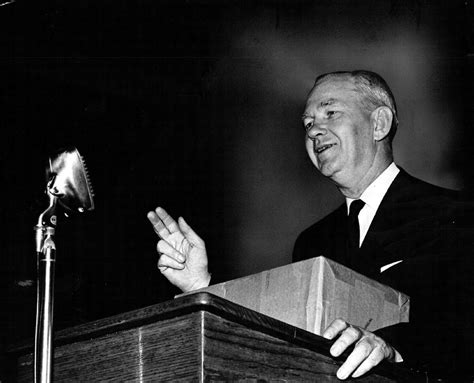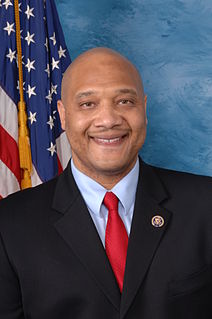A Quote by Robert W. Welch, Jr.
In our Constitution governmental power is divided among three separate branches of the national government, three separate branches of State governments, and the peoples of the several States.
Related Quotes
Those who wrote the Constitution clearly understood that power is dangerous and needs to be limited by being separated - separated not only into the three branches of the national government but also separated as between the whole national government, on the one hand, and the states and the people on the other.
The three branches of government number considerably more than three and are not, in any sense, 'branches' since that would imply that there is something they are all attached to besides self-aggrandizement and our pocketbooks. ... Government is not a machine with parts; it's an organism. When does an intestine quit being an intestine and start becoming an asshole?
I believe that the Constitution is not hostile to the idea that national problems can be solved at the national level through the cooperative efforts of the three coequal branches of government, the Congress, the executive and courts. But not every president, not every legislator and not every judge agrees that the federal government has the power to address and to try to remedy the twin national problems of poverty and access to equal opportunity.
We've never had our injustices rectified from the top, from the president or Congress, or the Supreme Court, no matter what we learned in junior high school about how we have three branches of government, and we have checks and balances, and what a lovely system. No. The changes, important changes that we've had in history, have not come from those three branches of government. They have reacted to social movements.
THE Constitution proposed by the convention may be considered under two general points of view. The FIRST relates to the sum or quantity of power which it vests in the government, including the restraints imposed on the States. The SECOND, to the particular structure of the government, and the distribution of this power among its branches.
Power is the great evil with which we are contending. We have divided power between three branches of government and erected checks and balances to prevent abuse of power. However, where is the check on the power of the judiciary? If we fail to check the power of the judiciary, I predict that we will eventually live under judicial tyranny.
The constitution has divided the powers of government into three branches, Legislative, Executive and Judiciary, lodging each with a distinct magistracy. The Legislative it has given completely to the Senate and House of Representatives. It has declared that the Executive powers shall be vested in the President, submitting special articles of it to a negative by the Senate, and it has vested the Judiciary power in the courts of justice, with certain exceptions also in favor of the Senate.
I see,... and with the deepest affliction, the rapid strides with which the federal branch of our government is advancing towards the usurpation of all the rights reserved to the States, and the consolidation in itself of all powers, foreign and domestic; and that, too, by constructions which, if legitimate, leave no limits to their power... It is but too evident that the three ruling branches of [the Federal government] are in combination to strip their colleagues, the State authorities, of the powers reserved by them, and to exercise themselves all functions foreign and domestic.
How to check these unconstitutional invasions of rights by the Federal judiciary? Not by impeachment in the first instance, but by a strong protestation of both houses of Congress that such and such doctrines advanced by the Supreme Court are contrary to the Constitution; and if afterwards they relapse into the same heresies, impeach and set the whole adrift. For what was the government divided into three branches, but that each should watch over the others and oppose their usurpations?

































